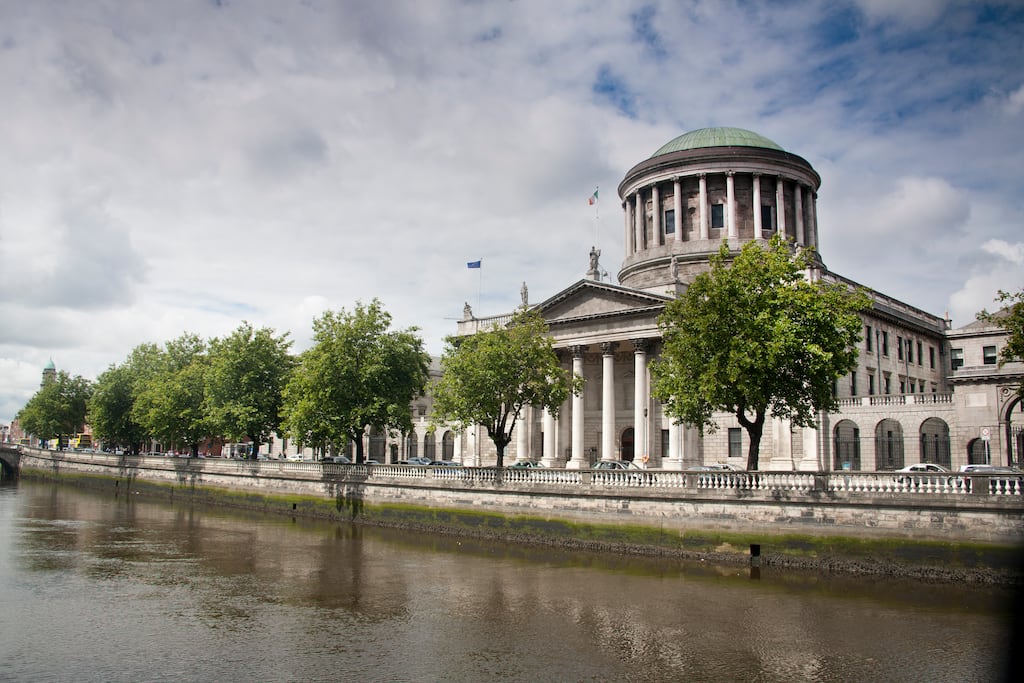The High Court has upheld the Minister for Justice’s decision not to grant an Ethiopian man a visa allowing him to reside in Ireland with his Somalian-born wife.
In her judgment, Ms Justice Siobhán Phelan said no grounds had been identified that would allow the court to set aside the Minister’s refusal to grant the visa to allow for family reunification.
However, the judge said the couple, who cannot be named for legal reasons, should submit up-to-date information and re-apply for the visa.
The woman was born in Somalia but came to Ireland many years ago and is a naturalised Irish citizen.
This Dublin office block sold for €106 million in 2018. It’s about to change hands for €50 million
Three-storey residence on historic road in Dublin 6 for €1.895m
Caribou restaurant review: A hip Dublin bar where the best thing on the menu isn’t even the roast
Opening race of Cheltenham Festival to be named in memory of Michael O’Sullivan
The judge said the couple, who are both educated, highly qualified and working in professional jobs met online some years ago and commenced a long-distance relationship via social media and internet calls.
The couple, the court heard, belong to the same tribe and their families are known to each other.
They decided to marry, and a traditional wedding ceremony was held in 2018, although it was noted by the judge that the woman was not able to attend.
The attendance of the bride at such traditional ceremonies is not necessary, and the bride’s mother attended as her representative, the judge noted.
The judge said the couple did have a “white wedding ceremony” in Ethiopia in 2019 and lived together for several months.
They decided that they should move to Ireland, so the husband applied for a visa that would allow him to reside in this jurisdiction.
The application, which was made under the family unification scheme, was refused by the Minister in 2021 on grounds including that there were deficiencies in the documentation submitted to the Irish National Immigration Service.
The couple was unsuccessful in their appeal against that refusal.
The couple challenged the refusal by way of High Court judicial review on the grounds that it was based on a flawed process with regards to the findings of fact and that there was a failure to consider properly the couple’s family rights, including the right to cohabit.
The judge said the Minister made the decision after holding that there was insufficient information to show the extent to which family life exists between the applicants.
There was also insufficient evidence of the woman visiting the husband in his home country both before and since their marriage.
The judge said the decision-makers had concerns about the different spellings of the woman’s name on the two certificates produced in respect of her marriage.
There was also a concern about the failure to furnish a full copy of her passport to the INIS.
The pages submitted showed a multi-visit visa from Ethiopia which was valid for three months in 2017 but no passport entries were provided in respect of other trips taken including the trips alleged to have taken place in 2019 and 2020, albeit that boarding cards and e-flight tickets were provided.
The failure to submit documentation in relation to the woman’s accommodation such as rental agreement, mortgage agreement or utility bills was also identified.
It was pointed out that the letter from the Ethiopian High Court did not provide full contact details to allow for verification, notwithstanding that it is clear from the INIS website that all such documentation should be on official headed paper giving full contact details, the judge said.
The absence of any confirmation that the woman’s mother was in Ethiopia for the 2018 wedding, any record of the woman’s father’s consent and any record on the marriage certificate that the marriage was by proxy were further matters identified by the Minister.
In reply, the woman had said the political situation in the part of Ethiopia where her husband lived and where the ceremonies took place deteriorated in 2019, and the area became dangerous and unstable.
The judge said the evidential gaps identified during the decision-making process were such that she was satisfied the refusal was almost inevitable.
The decision to refuse would have been made even if there were no concerns in relation to finances, the judge added.
The judge said a fresh application was the appropriate course of action.
“Significant new information which is clearly material to the consideration of the application was relied upon in these proceedings but was not properly before the respondent when the application was considered and refused,” she said.









